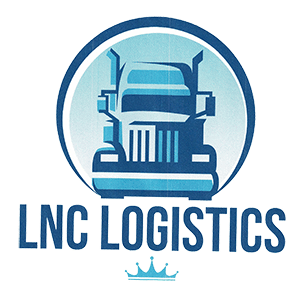In the world of logistics and transportation, cost-efficiency is often the name of the game. Companies constantly seek ways to minimize their shipping expenses while maintaining reliable and timely deliveries. One effective method that many businesses turn to is using freight brokers. But why do freight brokers offer some of the cheapest shipping solutions available? In this comprehensive blog post, we’ll explore the role of freight brokers, how they operate, and why they can often secure the best shipping rates in the industry.
Understanding Freight Brokers
What Is a Freight Broker?
A freight broker acts as an intermediary between shippers (those who need to transport goods) and carriers (those who provide transportation services). They do not own the trucks or physical assets required for transportation; instead, they leverage their network of carriers to find the best shipping solutions for their clients.
The Role of Freight Brokers
Freight brokers handle various tasks, including:
Negotiating Rates: Freight brokers negotiate rates with carriers on behalf of their clients to secure competitive pricing.
Route Optimization: They optimize routes to ensure efficient and timely delivery of goods.
Documentation: Brokers handle necessary paperwork and documentation for shipments, ensuring compliance with regulations.
Tracking and Communication: They provide real-time tracking and updates, ensuring smooth communication between shippers and carriers.
Benefits of Using Freight Brokers for Shipping
Cost Savings
One of the primary reasons businesses turn to freight brokers is the potential for significant cost savings. Here’s how brokers achieve this:
Volume Discounts
Freight brokers often work with a large volume of shipments, allowing them to negotiate bulk discounts with carriers. These savings are then passed on to their clients, resulting in lower shipping costs.
Competitive Bidding
Brokers have access to a broad network of carriers and can initiate a bidding process. Carriers compete for the business, driving down the price and providing more cost-effective options for shippers.
Access to Discounts
Freight brokers have established relationships with carriers and can access discounts and special rates that may not be available to individual shippers. These relationships are built over time and through consistent business, providing brokers with leverage to negotiate better deals.
Time Efficiency
Time is money in the business world, and freight brokers help save both. They handle the time-consuming tasks of finding carriers, negotiating rates, and managing logistics, allowing businesses to focus on their core operations.
Expertise and Industry Knowledge
Freight brokers possess deep industry knowledge and expertise, enabling them to navigate the complexities of the shipping industry. They are aware of market trends, regulatory changes, and the best practices for efficient shipping.
Flexibility and Scalability
Freight brokers offer flexibility in terms of shipping options. Whether a business needs to ship a small parcel or a large freight load, brokers can find the most suitable carrier and mode of transport. This scalability is particularly beneficial for businesses with fluctuating shipping needs.
Enhanced Tracking and Communication
Freight brokers utilize advanced technology to provide real-time tracking and communication. Shippers can stay informed about the status of their shipments, reducing uncertainty and improving overall supply chain visibility.
The Economics Behind Freight Broker Pricing
Leveraging Market Knowledge
Freight brokers have their fingers on the pulse of the transportation market. They understand the fluctuations in supply and demand, fuel prices, and other factors that impact shipping costs. By leveraging this knowledge, they can predict and capitalize on favorable market conditions to secure lower rates.
Economies of Scale
Brokers aggregate the shipping needs of multiple clients, creating larger volumes of freight. This aggregation allows them to negotiate better rates due to the higher volume of business they bring to carriers. These economies of scale result in cost savings for individual shippers.
Strategic Partnerships
Freight brokers build strategic partnerships with carriers, often securing long-term agreements that include favorable pricing structures. These partnerships are based on mutual benefits—brokers bring consistent business to carriers, and carriers offer competitive rates in return.
Reducing Empty Miles
One of the significant challenges in the transportation industry is the issue of empty miles—when trucks travel without cargo. Freight brokers optimize routes and consolidate shipments to minimize empty miles, leading to more efficient use of transportation resources and lower costs.
The Value-Added Services of Freight Brokers
Route Optimization
Freight brokers use sophisticated software to optimize shipping routes. This optimization considers factors such as distance, traffic, fuel costs, and delivery schedules to determine the most efficient routes. Optimized routes save time and money by reducing fuel consumption and minimizing delays.
Consolidation Services
Consolidation is the practice of combining multiple small shipments into a single larger shipment. Freight brokers excel at consolidating shipments from different clients, reducing the overall cost per shipment. This is particularly beneficial for small and medium-sized businesses that may not have enough volume to fill a truck on their own.
Risk Management
Shipping goods comes with inherent risks, including damage, loss, and delays. Freight brokers offer risk management services to mitigate these risks. They provide insurance options, ensure compliance with regulations, and work with reputable carriers to minimize the likelihood of issues.
Technology Integration
Freight brokers invest in technology to streamline their operations and provide better service to their clients. This includes transportation management systems (TMS), real-time tracking, and automated reporting. The integration of technology enhances efficiency, accuracy, and transparency in the shipping process.
Real-World Applications and Case Studies
Small Business Benefits
Small businesses often lack the resources and bargaining power to negotiate directly with carriers. Freight brokers level the playing field by providing access to competitive rates and comprehensive logistics services. For example, a small e-commerce company can partner with a freight broker to manage its shipping needs, reducing costs and improving delivery times.
Large Enterprise Solutions
Large enterprises with complex supply chains benefit from the scalability and expertise of freight brokers. By outsourcing their logistics to brokers, these companies can focus on their core business activities while ensuring efficient and cost-effective shipping. For instance, a multinational corporation can use a freight broker to handle its global shipping operations, optimizing routes and consolidating shipments across multiple regions.
Choosing the Right Freight Broker
Key Considerations
When selecting a freight broker, businesses should consider the following factors:
Experience and Reputation: Look for brokers with a proven track record and positive industry reputation.
Technology and Tools: Ensure the broker uses advanced technology for tracking, communication, and route optimization.
Range of Services: Assess the range of services offered, including risk management, consolidation, and documentation handling.
Customer Support: Evaluate the level of customer support provided, including responsiveness and problem-solving capabilities.
Carrier Network: Consider the size and quality of the broker’s carrier network to ensure reliable and timely deliveries.
Questions to Ask
How long have you been in business?
What types of industries do you specialize in?
Can you provide references from current clients?
What technology do you use for tracking and communication?
How do you handle disputes and issues that arise during shipping?
The Future of Freight Brokerage
Technological Advancements
The freight brokerage industry is continuously evolving with advancements in technology. Artificial intelligence, machine learning, and blockchain are set to revolutionize the way brokers operate. These technologies will enhance route optimization, improve transparency, and streamline documentation processes.
Sustainability and Green Logistics
As environmental concerns grow, freight brokers are increasingly focusing on sustainability. This includes optimizing routes to reduce carbon emissions, partnering with eco-friendly carriers, and promoting the use of alternative fuels. Businesses that prioritize sustainability can work with freight brokers to achieve their green logistics goals.
Market Trends
The logistics industry is influenced by various market trends, including e-commerce growth, globalization, and supply chain disruptions. Freight brokers adapt to these trends by offering flexible and scalable solutions. For instance, the rise of e-commerce has increased the demand for last-mile delivery services, and brokers are expanding their networks to meet this demand.
The Cheapest Shipping Solutions Are Available Through Freight Brokers
Freight brokers play a crucial role in the logistics industry by offering cost-effective shipping solutions. Their ability to negotiate competitive rates, optimize routes, and leverage market knowledge results in significant savings for businesses. Additionally, freight brokers provide value-added services such as risk management, consolidation, and technology integration, enhancing the overall efficiency and reliability of the shipping process. These services not only reduce costs but also minimize risks and improve delivery times, contributing to a more streamlined and effective supply chain.
For businesses of all sizes, partnering with a freight broker can lead to substantial cost savings and operational efficiencies. Small businesses, in particular, benefit from the broker’s ability to secure rates and services that would otherwise be inaccessible. Large enterprises, on the other hand, gain from the scalability and strategic insights brokers offer, allowing them to handle complex logistics operations with greater ease. By choosing the right broker and leveraging their expertise, companies can navigate the complexities of the shipping industry and achieve their logistics goals, ensuring they remain competitive in a demanding market.
Freight brokers also play a pivotal role in helping businesses adapt to market changes and disruptions. Their extensive network and industry knowledge enable them to provide alternative solutions quickly, ensuring that goods continue to move smoothly even during unforeseen events. This agility is particularly valuable in today’s dynamic global market, where supply chain disruptions can have significant impacts.
In the ever-evolving world of logistics, freight brokers will continue to be a vital component, driving innovation, sustainability, and cost-efficiency in the transportation of goods. As technology advances, brokers will integrate new tools and systems to further enhance their service offerings, providing even greater value to their clients. Their focus on sustainability will also grow, helping businesses meet environmental goals while maintaining efficiency. By staying ahead of industry trends and continuously improving their services, freight brokers will remain indispensable partners for companies looking to optimize their logistics operations and achieve long-term success.
LNC Logistics
507 N Sam Houston Pkwy E Suite 202
Houston, TX 77060
Phone: (832) 777-1789
View our Google Business Listing
View our Facebook Page



